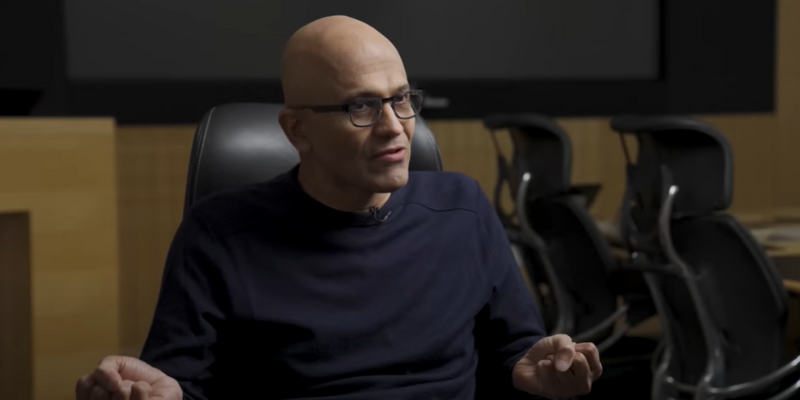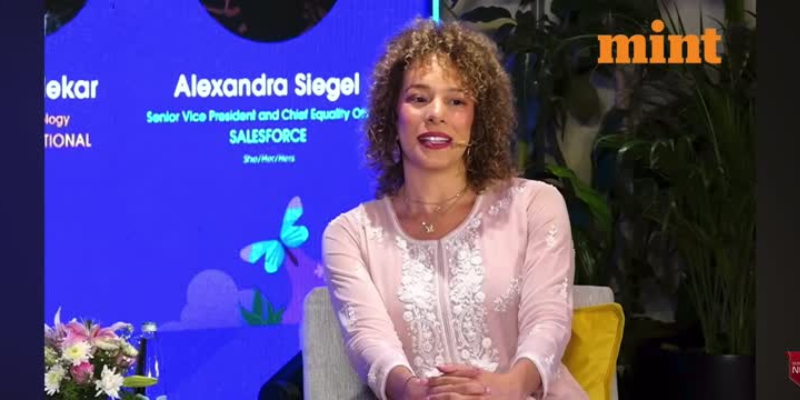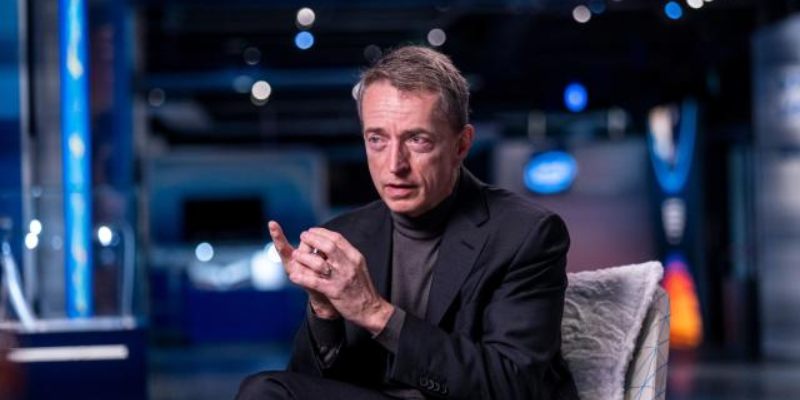In 2024 in the tech sector, public perceptions can attract billions in investment or they can make it disappear.
In this edition of Impact Insights, we’re looking at how Big Tech’s biggest beasts use executive media engagement to shape perceptions of their businesses, with the people who matter.
Why Sam Altman isn't the world's most dangerous man, by Sam Altman

- You know the conversation around AI safety has truly gone mainstream when a tech CEO lands on Oprah’s sofa. Sam Altman, CEO of OpenAI, is much-discussed. Critics argue he’s developing a critical technology for profit, while his supporters say he’s safety-first.
- So, Altman’s Oprah mission, in short: be likeable; be comprehensible.
- He did a few things well:
- Simplicity: he answered Oprah's question on how ChatGPT works, saying “we are showing the system a thousand words in a sequence and asking it to predict what word comes next and doing that again and again and again”. What’s to fear in that?
- Body language: he used posture to dictate the register of the conversation. Oprah’s superpower is getting interviewees to overshare, but Altman was disciplined. While she leaned in conspiratorially, Altman sat back.
- Mixing rough with smooth: Altman was polished and prepped in parts (e.g. on diversity at OpenAI), but elsewhere, seemed genuinely to engage with the sentiment of the question. When asked about being called "the most powerful man", he didn't turn to a talking point. He paused and answered personally. "It's definitely strange...I don't feel I am."
- Given audience perceptions, Altman didn’t need to do more than seem thoughtful and relatable. But game plans are tough to stick when the red recording light is on.
Top takeaways for leaders: Know the perception you’re looking to shift. Altman succeeded because he built a simple game plan based on an understanding of his audience. And he stuck to it with discipline.
Creating an underdog out of a Silicon Valley giant

- When Microsoft announced its multi-billion-dollar investment in OpenAI to boost Bing’s competitiveness, Satya Nadella faced a challenge: how do you position one of the world’s biggest companies as an underdog, without unduly rocking a commercial relationship with the incumbent, Google?
- Speaking to The Verge, Nadella did a decent job, using similes, personal anecdotes, and a playful tone.
- He helped establish the underdog battle by framing Google as the “800-pound gorilla” of search. Immediately, we understand what Microsoft is up against in building Bing to compete with Google – and can’t help but be interested (everyone loves a David and Goliath story, even if David has a $3tn market cap).
- He risked alienating the audience by deflecting responsibility with statements like “AI doesn’t generate it, you prompted it,” but won them back by sharing a personal story about his daughter using AI to understand school texts.
- He made jokes, asked the interviewer questions, and smiled. This worked to his advantage; he could speak honestly about growth ambitions without seeming like a greedy tech giant.
Top takeaways for leaders: A playful tone helps when commenting on tough topics and market competition. It’s a tool to speak honestly with a lightness that avoids creating new headlines.
Addressing the AI inclusivity challenge straight on

- Closing the gender gap is a tough issue in most industries, but especially in tech. With the AI boom of 2023 sparking global conversation over how to handle an AI inclusivity crisis, Salesforce Equality Chief Alexandra Legend Siegel took the heat out of the debate when speaking at the Salesforce Gender Equality Summit. She shaped perceptions with positioning and smart use of language.
- She sided with her audience, asking “how many times has a technology been created and it’s left out our experience”. Clever wording instantly puts her and the audience on the same side and nameless ‘bad tech’ on the other.
- She got personal, quickly steering the conversation to emotions over data by saying, "but what excites me." It is much harder to argue with personal opinion than company key messages.
- Siegel defused potential negativity by immediately addressing fears around AI. Articulating the emotion your audience is feeling is the fastest way to persuade them.
Top takeaways for leaders: Audiences aren’t really persuaded by data – they just think they are. If you can get your audience to believe you’re fundamentally like them, and on their side, they’ll receive data more favorably.
Inside Intel's 'mistakes': How Pat Gelsinger works to control the story

- If US lawyer Roy Cohn’s supposed rules for winning were to “claim victory and never admit defeat”), Intel CEO Pat Gelsinger takes a different approach. Speaking to media, Gelsinger happily shared the biggest technology trends he felt Intel missed.
- Humble leadership, right? What looks like humility is in fact shrewd media management. Journalists are always looking for eye-catching quotes to hang a story from; this was handed to them on a platter. Gelsinger said Intel missed two “monster trends”: the mobile wave and initial AI wave.
- Between the lines, the message to investors and Congress is that Intel isn’t missing the wave this time, and so investment dollars are being well-spent.
Top takeaways for leaders: When prepping for an interview with a strategic objective, reserve your most quotable lines for the subject that matters most. And don’t worry about being boring for the rest.

